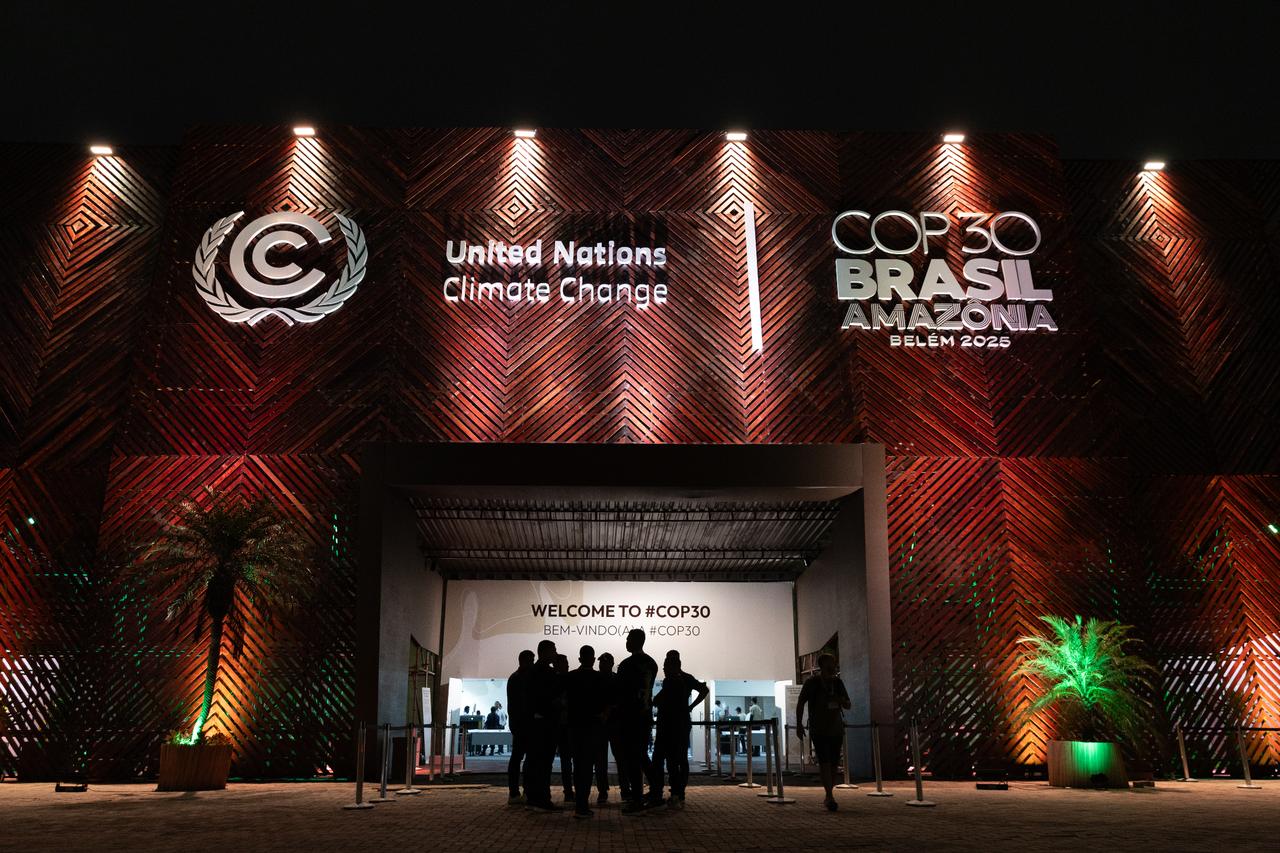
The COP30 climate summit concluded Saturday with nearly 200 nations adopting a modest agreement on climate action, despite the absence of the United States and open protests from countries demanding stronger language on fossil fuels.
The summit in Brazil’s Amazon region delivered commitments on adaptation finance, trade, forests, and methane reduction but failed to secure a roadmap for phasing out fossil fuels, a central demand from dozens of delegations.
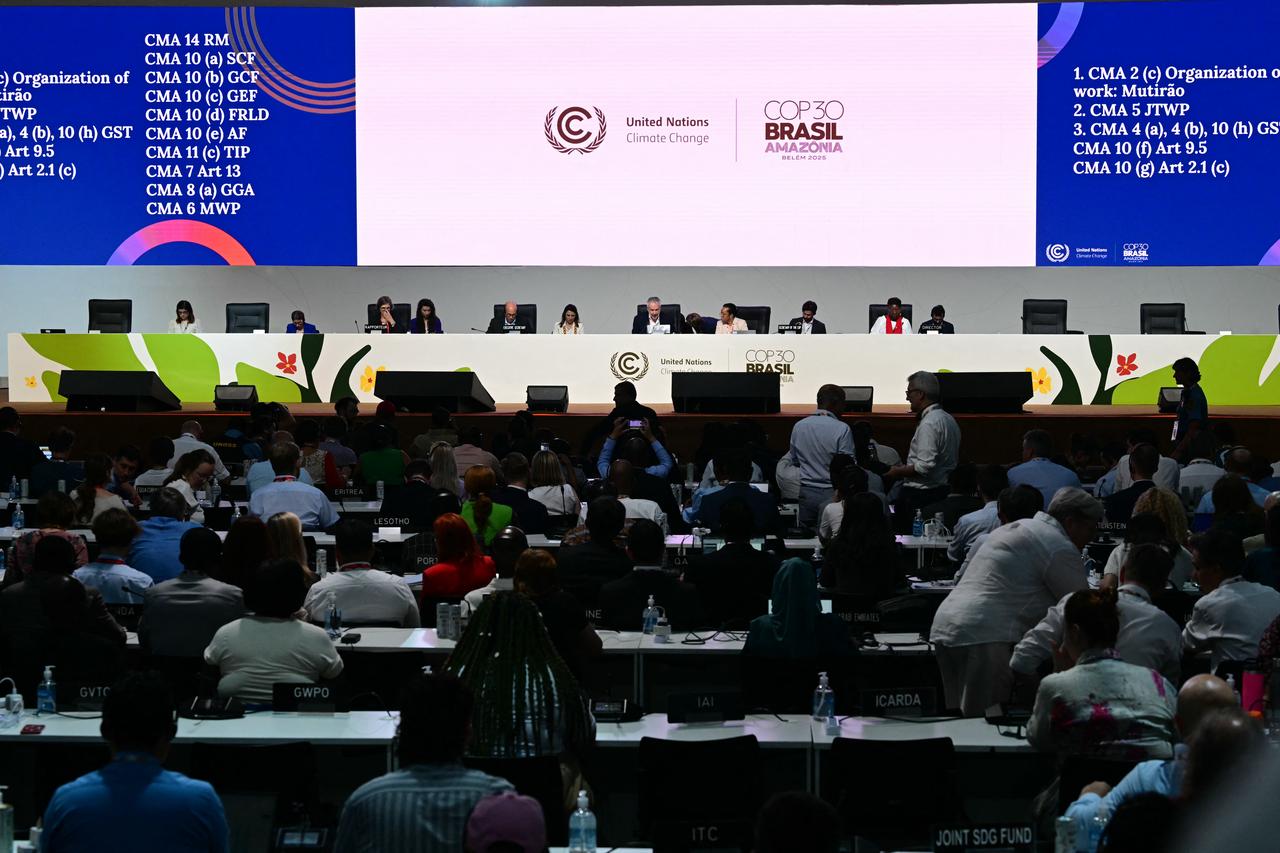
The final COP30 deal centered on the “mutirao” pact, a collective-effort initiative encouraging countries to voluntarily collaborate to cut emissions and aim to keep global warming below 1.5°C.
The agreement referenced a COP28 pledge to “transition away from fossil fuels,” though the exact phrase was not included in the final text.
Developing countries secured a notable win with the deal’s call to “at least triple adaptation finance by 2035,” addressing long-standing concerns over insufficient funding to help vulnerable nations protect themselves from worsening climate impacts.
Trade appeared for the first time in a COP text, with a new three-year dialogue acknowledging concerns, especially from China, that climate-linked trade measures could damage export revenues or restrict access to green technologies.

Brazil unveiled the Tropical Forests Forever Facility, a fund aiming to reward forest-rich nations for preserving trees.
The initiative drew $5.5 billion in initial pledges from Norway, Germany, Indonesia, France and Brazil, with a broader target of raising $125 billion.
Seven countries—Britain, France, Canada, Germany, Norway, Japan and Kazakhstan- pledged to achieve “near-zero” methane emissions in the fossil fuel sector.
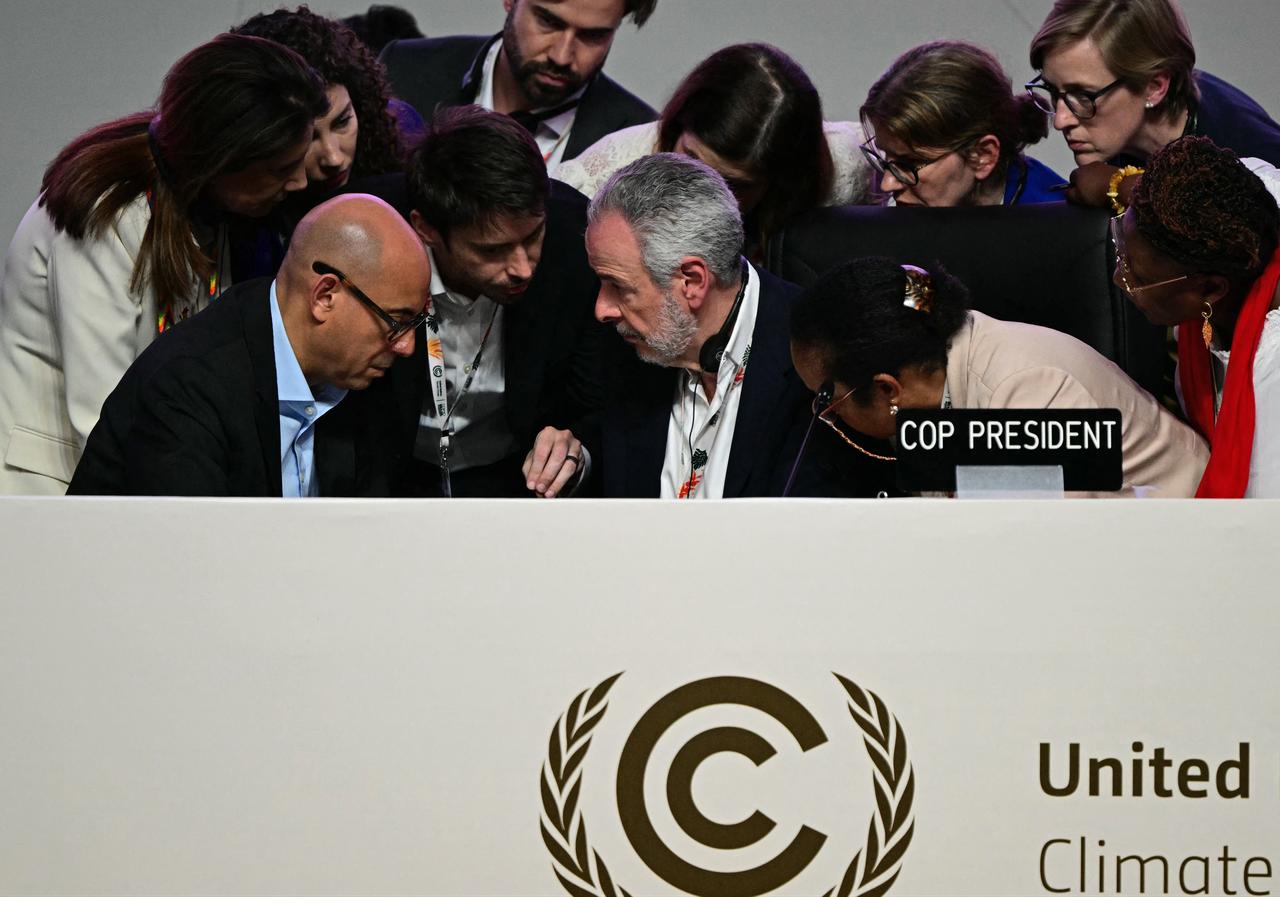
The most contentious issue of COP30 was the failure to include an explicit commitment to phase out oil, gas, and coal.
Delegations from the EU, Colombia, Panama and Switzerland protested during the final plenary session, raising flags in objection.
COP30 President Andre Correa do Lago briefly suspended the session before approving the text despite objections.
Colombia issued some of the strongest criticisms.
Environment Minister Irene Velez said the summit “denies science” by omitting a fossil fuel phase-out, while President Gustavo Petro said he did “not accept” a declaration that fails to identify fossil fuels as the cause of the climate crisis.
EU Climate Commissioner Wopke Hoekstra said the bloc “would have liked to see much more,” though it would still support the final text.
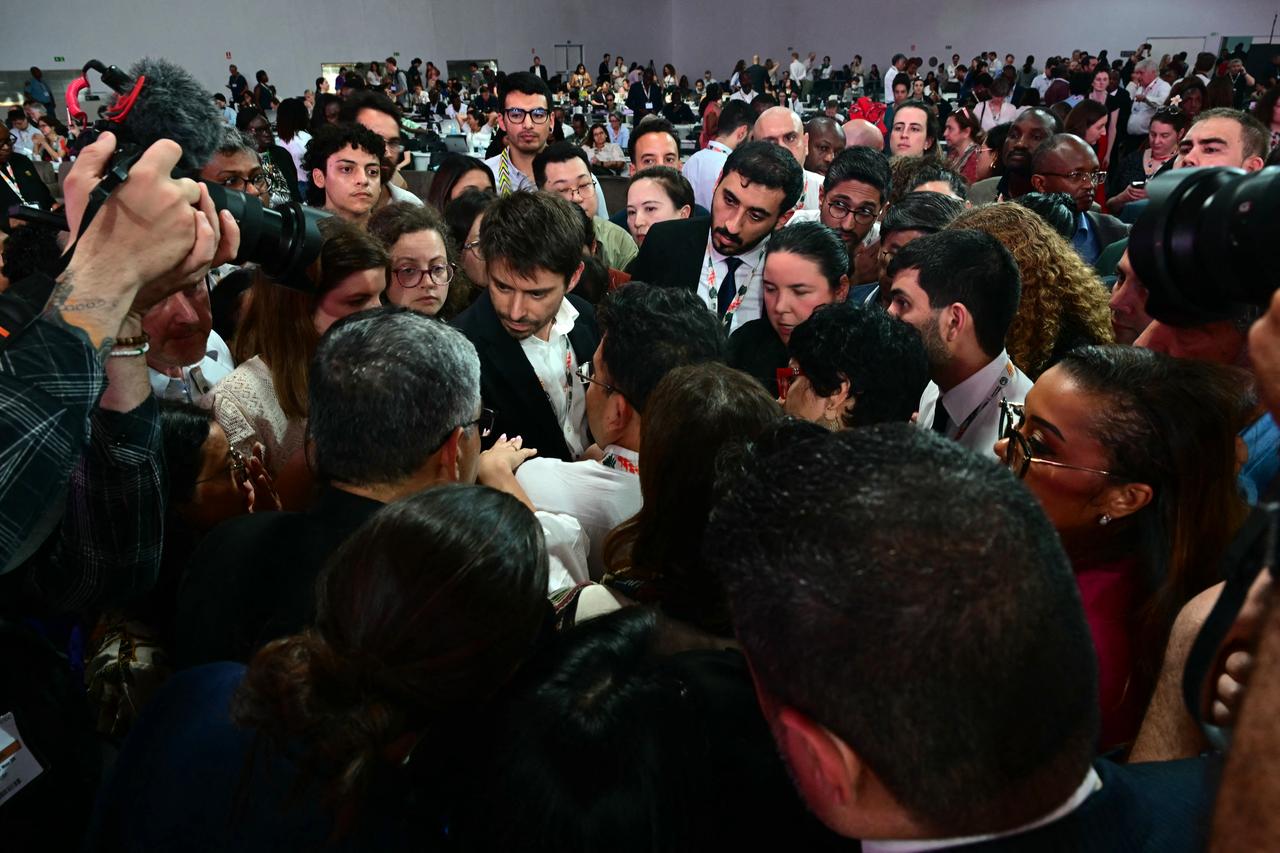
Brazilian President Luiz Inacio Lula da Silva praised the agreement, saying “science prevailed” and “multilateralism won,” while acknowledging the difficulty of negotiations.
India hailed the deal as “meaningful,” and China said the summit would go down as “a success in a very difficult situation.”
The Alliance of Small Island States called the pact “imperfect” but necessary, noting the importance of securing adaptation finance.
UN Secretary-General Antonio Guterres commended efforts but said the gap between action and scientific necessity “remains dangerously wide.”
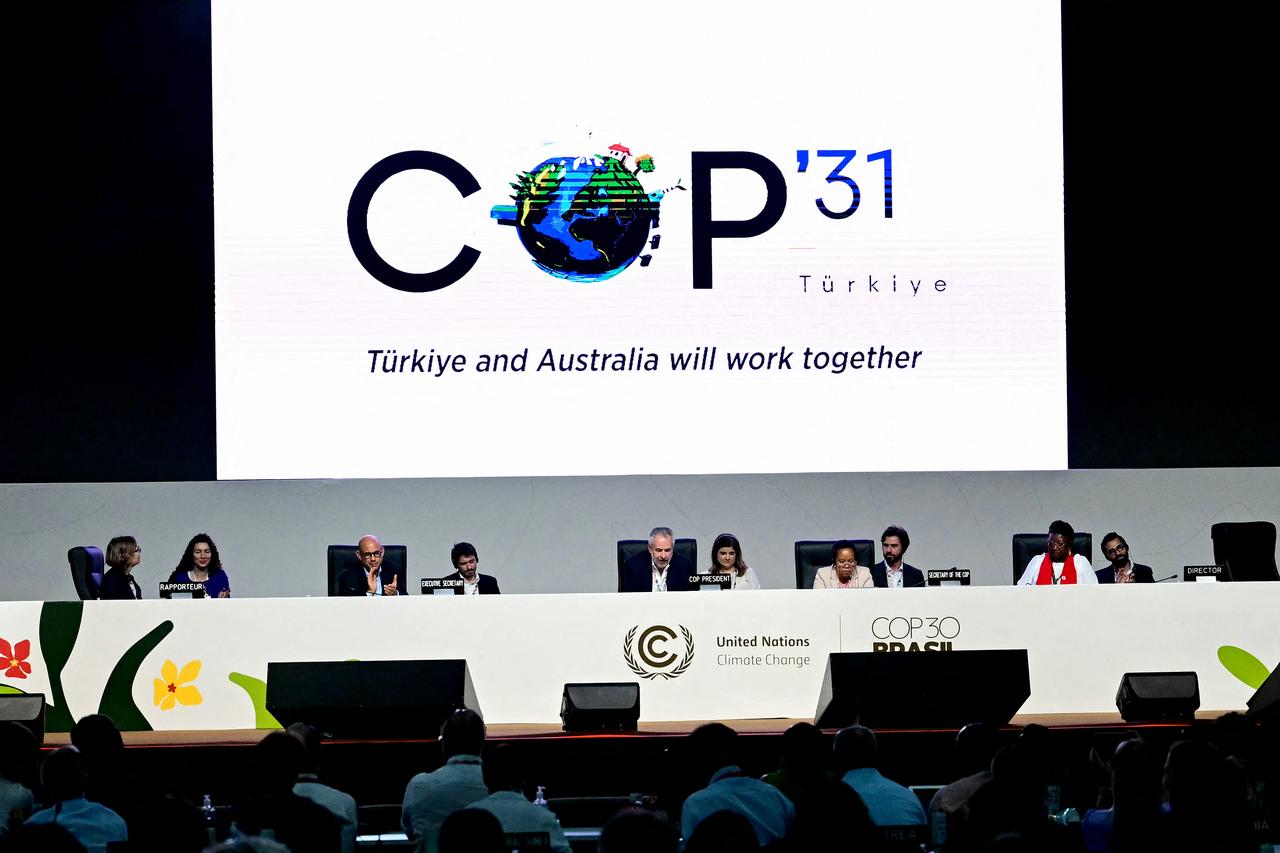
The United States boycotted COP30, drawing criticism from South Africa and other G20 leaders.
The absence loomed over negotiations, with envoys noting that the declaration was drafted without U.S. involvement.
The summit was marked by mass protests, Indigenous demonstrations, and even a fire at the conference venue, contrasting sharply with recent COPs held in more controlled environments.
Despite internal divisions and weakened language, the summit ended with a unified, though limited, declaration, as Brazil prepares to hand over the COP presidency to Türkiye at COP31.